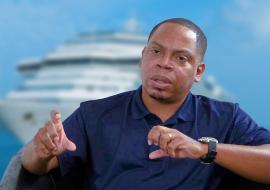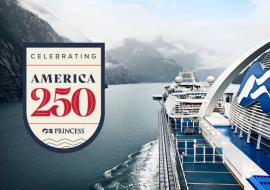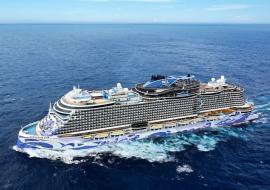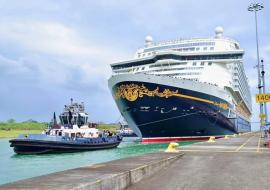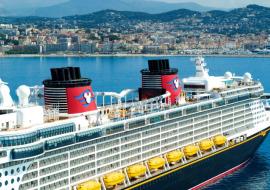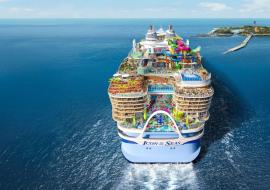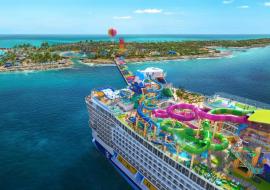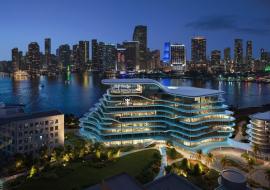Key West Mulls Over Future as Cruise Ship Stop
There is no better motto for this raucous southernmost point on the US map than "One Human Family". That family is a trove of unlikely characters who have somehow managed to merrily coexist here: pirates, bootleggers, treasure hunters, fishermen, scoundrels, writers, artists, musicians, bohemians, Bahamians, Cubans, gays, rummies - even a president (Harry S Truman).
Another category in this list of inhabitants and sojourners is the cruise ship passenger, who has shaped modern Key West as much as the rest but remains unwelcomed by some and as polarizing as ever. Now, cruise ships and their day-tripping passengers are at the crux of a debate over Key West's identity and its path to the future.
Should Key West embrace its artsy, wealthier side and steer towards becoming a funkier version of Nantucket and the Hamptons? Or should it continue to stoke mass tourism, with its reliable stream of dollars but also its proliferating slogan-shouting T-shirt shops and trinket stores?
"I do recognize we need our cruise ships to help with the city budget," said Tony Falcone, a store owner and Key West resident since the 1970s who is not a fan of the cruise ships. "But I want a balance. And I think the balance right now is leaning towards the cruise ship industry and away from the arts community. We don't want to be known as a town that has sold our soul to the cruise ship industry."
After much back-and- forth, the City Commission opted late this year to bow out of the politically treacherous decision and let voters take a first, tentative step towards deciding whether Key West will become an even bigger destination for cruise ships.
Residents will vote on a referendum next fall on whether to commission a three-year, US$3 million study from the Army Corps of Engineers to analyze the pros and cons of widening the main channel that leads to Key West's three ports. The channel sits inside an environmentally sensitive federal marine sanctuary, which means any dredging would require congressional approval. All of this guarantees that a widened channel would not be completed for at least a decade.
Widening the channel is a necessary step in accommodating the industry's latest and largest cruise ships, which require greater maneuverability to comfortably pull into Key West. If the channel is not widened, more of the larger ships will not stop in Key West. Larger ships run by Royal Caribbean Cruises already bypass Key West, a company spokeswoman said.
A drop in traffic would hurt the city's economy, at least in the short term, particularly the slice of Key West that caters to ship passengers. Business owners predict that some shops would close, tour operators would suffer and even big-box stores that sell to the ship's crew would take a hit. The city stands to lose jobs and at least US$70 million in annual revenue and fees, cruise ship proponents say.







